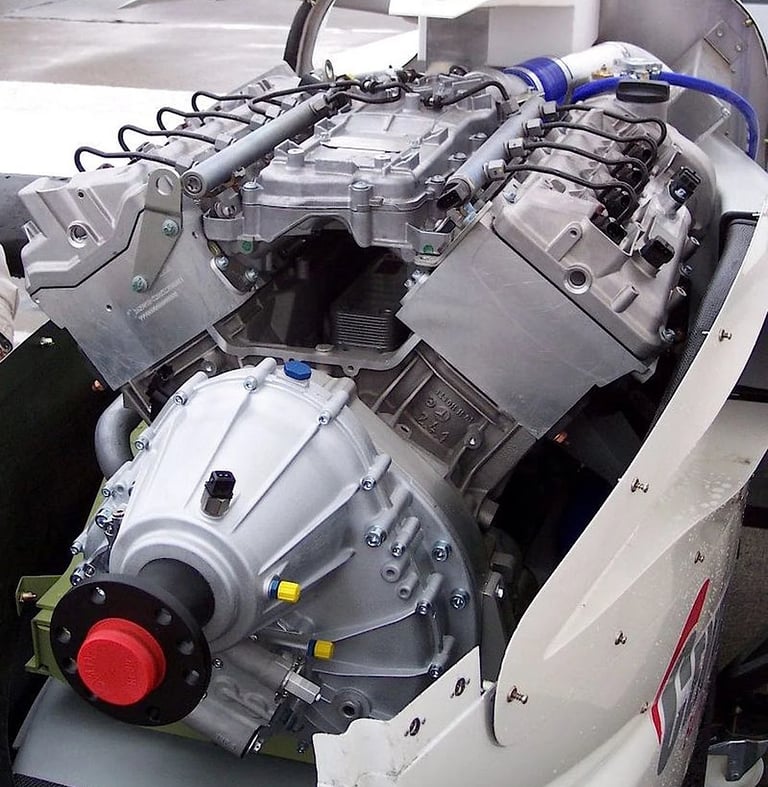Why Diesel Engines Aren't Suitable for Fighter Jets
2/18/20252 min read


When it comes to military aviation, the choice of engine is crucial. Fighter jets require engines that provide high thrust-to-weight ratios, efficiency at high altitudes, and exceptional maneuverability. Let's delve into why diesel engines don't fit the bill for this demanding role, highlighting the pros and cons of using diesel engines in fighter jets.
Pros of Diesel Engines:
Fuel Efficiency: Diesel engines are generally more fuel-efficient than gasoline engines, providing better mileage. This means that for certain applications, such as ground vehicles, diesel engines offer significant advantages in terms of operational cost and range.
Durability and Longevity: Diesel engines are known for their durability and long service life. They can withstand higher temperatures and pressures compared to gasoline engines, making them suitable for applications that require ruggedness and reliability.
Torque: Diesel engines generate higher torque at lower RPMs, making them suitable for heavy-duty applications where high torque is essential. This characteristic is valuable for trucks and large machinery that require substantial pulling power.
Cons of Diesel Engines for Fighter Jets:
Weight and Bulk: Diesel engines are heavier and bulkier than jet engines, which is a significant drawback for fighter jets. The added weight and size would reduce the aircraft's agility, speed, and overall performance.
Thrust-to-Weight Ratio: Fighter jets require engines with a high thrust-to-weight ratio to achieve supersonic speeds and rapid maneuvers. Diesel engines lack the necessary power-to-weight ratio, making them unsuitable for such high-performance demands.
Altitude Performance: Jet engines are designed to operate efficiently at high altitudes, where the air is thin. Diesel engines, on the other hand, are not optimized for high-altitude performance and would struggle to provide the necessary power and efficiency.
Complexity: Diesel engines are mechanically more complex than jet engines, requiring more maintenance and increasing the risk of mechanical failures. Fighter jets need highly reliable and low-maintenance engines to ensure operational readiness.
Fuel Type: Fighter jets typically use jet fuel (kerosene-based), which is different from diesel. Using diesel engines would necessitate a change in fuel logistics, complicating supply chains and increasing operational costs.
In conclusion, while diesel engines have their strengths, they are not suited for the high demands of fighter jets. The specific requirements of military aviation—lightweight design, high thrust-to-weight ratio, efficient high-altitude performance, and simplicity—are best met by jet engines. Adapting diesel engines for fighter jets would compromise these critical factors, ultimately affecting the aircraft's performance and effectiveness. Therefore, jet engines remain the optimal choice for powering these advanced and agile machines.
Support
Ask questions and share truck repair tips.
Connect
© 2025. All rights reserved.
